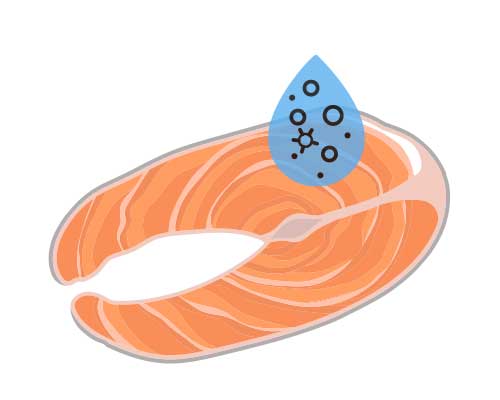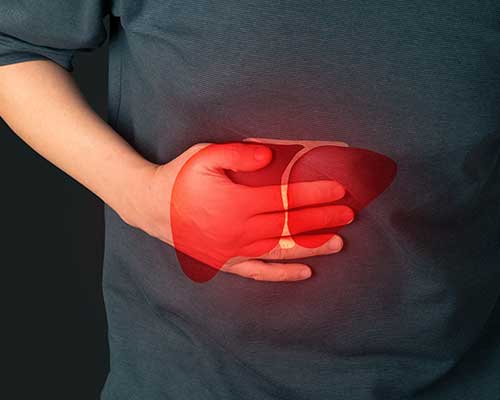The ABCDE of Hepatitis

The liver is a vital organ essential for maintaining optimal bodily functions. It plays a key role in metabolism, breaking down nutrients from food to provide energy, and producing bile to aid in digestion.
In addition, the liver filters toxins and harmful substances from the blood, helping to detoxify the body. It also stores essential nutrients such as vitamins and minerals, and produces proteins necessary for blood clotting and immune function.
However, it is vulnerable to diseases like hepatitis, which is an inflammation of the liver caused by viral infections. Hepatitis can impair liver function, leading to symptoms like jaundice, fatigue, and abdominal pain. If left untreated, it can progress to more severe conditions such as cirrhosis or even liver failure.
The five known hepatitis subtypes are A, B, C, D, and E, with the most common types being hepatitis B, and C.
Hepatitis Exposé
Hepatitis as a medical condition is relatively unknown and poorly understood. Many are even unaware that they have hepatitis.
Here are four common myths about hepatitis debunked.
Myth 1: You can get hepatitis only from eating contaminated seafood.
FACT: Hepatitis A and E can spread through consuming contaminated food, water, and even ice. Developing countries are at higher risk for hepatitis A and E infections. Hepatitis B, C, and D can spread through blood and body fluids, including sexual contact with someone who is infected, and the use of contaminated needles during injections, blood transfusions, and tattooing.

More than 90 per cent of chronic hepatitis B cases are transmitted from mother to child during birth. Hepatitis D infection only occurs in people who already have chronic hepatitis B infection.
Myth 02: Viral hepatitis is very rare.
FACT: Hepatitis B and C are the most common infectious diseases in the world, with more than 350 million people infected with it worldwide.
In Singapore, about 6 per cent of adults are hepatitis B carriers. However, many do not know they have the virus as the condition often has no noticeable symptoms.
If you feel unwell or uncertain about your heath, it is best to visit a medical professional to get tested. Hepatitis B and C may lead to chronic diseases and are the main causes of liver cirrhosis and cancer. That said, hepatitis D is rare in developed countries and requires the viral particles of hepatitis B virus to replicate.
Myth 03: Those infected with hepatitis will get very sick and die from a serious liver disease or cancer.
FACT: In rare cases, hepatitis A can cause liver failure and even death1. This is more common in older people and in people with certain serious health issues, such as chronic liver disease. Pregnant women who get infected with hepatitis E face a higher risk of death from that infection, but numbers of such cases are low. About 90 per cent of adults infected with hepatitis B experience an acute infection that typically lasts for a few weeks or months.

Most individuals will fully recover without experiencing any lasting health problems. Hepatitis B transmitted vertically from mother to child is usually chronic. Chronic hepatitis B and C carriers are at higher risk of liver cancer and should have regular medical checkups. Their spouses and sexual partners should also practise safe sex and should be vaccinated against hepatitis B.
1CDC U.S Centres for Disease Control and Prevention source link (Accessed 7 July 2024).
Myth 04: There is no way to prevent hepatitis.
FACT: There are vaccinations for Hepatitis A and B. Hepatitis A vaccine requires two doses, given six months apart. Hepatitis B vaccine is a three-dose series, given on a zero, one, and six-month schedule.
If you need both, you can opt for the combination hepatitis A and B vaccine, a three-dose series administered at a zero, one, and six-month schedule, similar to hepatitis B vaccine. There is currently no vaccine against hepatitis C, D or E.
Hepatitis remains a significant global health concern, affecting millions annually.
Vaccination not only protects individuals from these potentially life-threatening diseases but also plays a crucial role in achieving public health goals of disease eradication and control.
If you or your loved ones have not yet been vaccinated against hepatitis, wait no longer to do so. Take the first step towards safeguarding your health today by scheduling your vaccination appointment.
| Hepatitis A | Hepatitis B | Hepatitis C | Hepatitis D | Hepatitis E | |
|---|---|---|---|---|---|
| Global numbers in a year | New infections: 1.4 million | • Chronic infections: 240 million • Acute cases: 4 million • Deaths: 1 million | • Chronic infections: 130 to 150 million • Deaths: 500,000 | Affects 5% of persons with hepatitis B | • New infection: 20 million • Symptomatic cases: 3 million • Deaths: 56,600 |
| Spread | Ingesting faecal matter from: • Contaminated food or drinks • Close contact with another person | Contact with infected body fluids via: • Childbirth from an infected mother • Sexual intercourse with an infected person • Sharing contaminated needles or other injection-related materials | Contact with infected body fluid. It only occurs in those who already have hepatitis B. | Contaminated food or water, and a possibility of transmission from pork, boar, and deer. | Contaminated water |
| Treatment | None needed. Most will recover after two weeks with medications and rest. | While some medications can suppress the virus, they cannot eradicate it. | New treatment available with high rate of success. | While some medications can suppress the virus, they cannot eradicate it. | None. Infection tends to clear on its own. |
| Vaccination | Yes, hepatitis A vaccine. | Yes, hepatitis B vaccine. | Currently, there is no vaccine available. | Yes, hepatitis B vaccine. | Yes, but not widely available. |
Symptoms: Diarrhoea, fatigue, loss of appetite, mild fever, nausea, muscle / joint aches, light abdominal pain, vomiting, weight loss, dark urine, drowsiness, light coloured faeces, jaundice or similar variants.
Note: Most hepatitis B carriers may not show any symptom at all.


